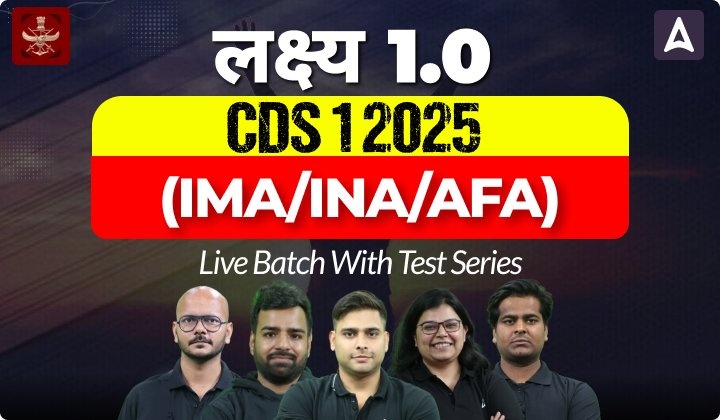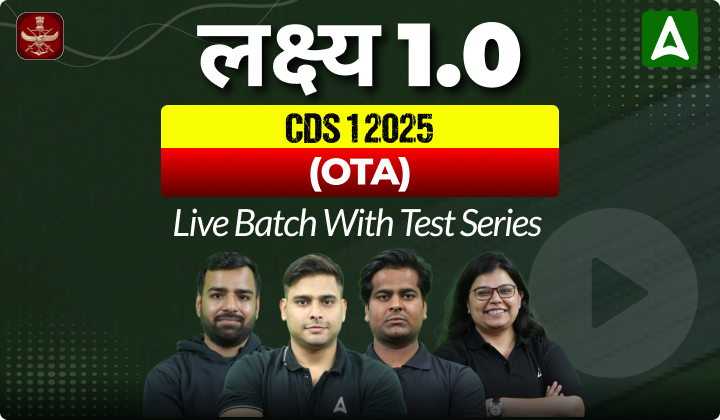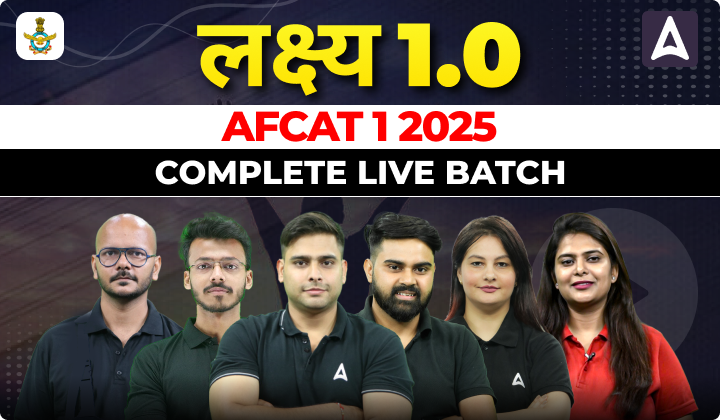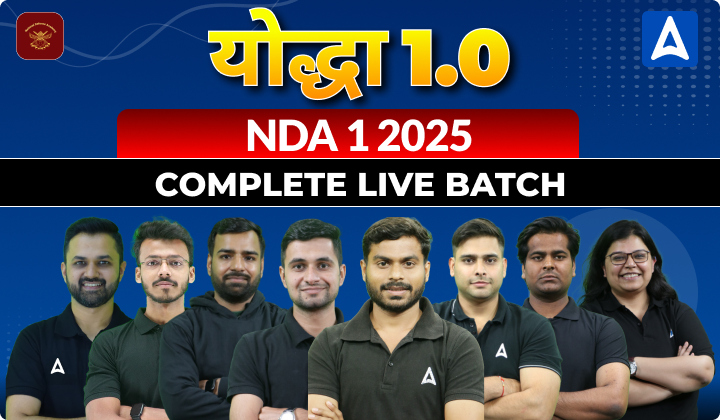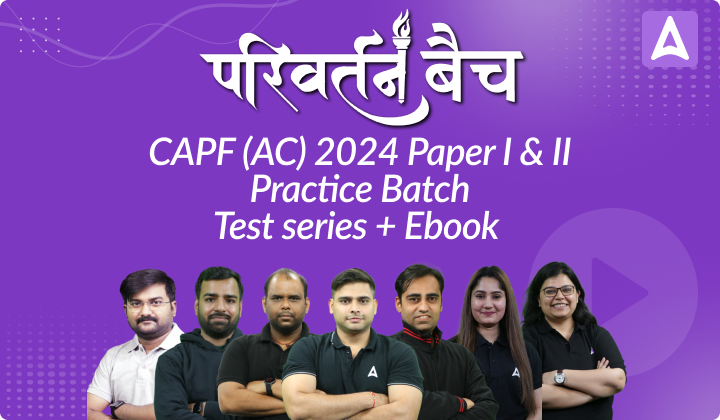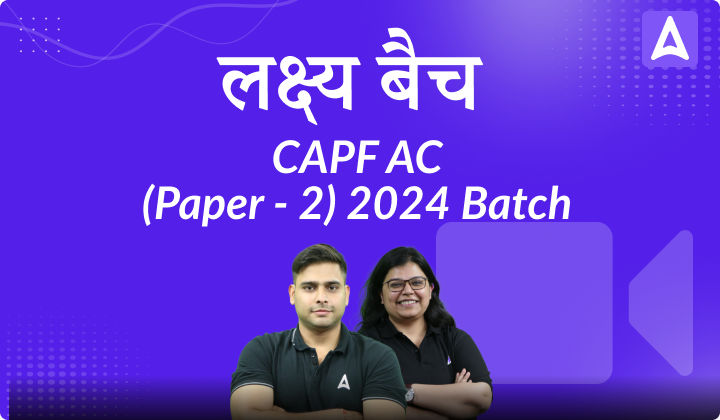Blood Relation
If you have given any competitive exam like Banking, Railways, SSC, UPSC, CAT, etc., with the reasoning portion then there is a high possibility that you have come across questions based on blood relation and that too in different forms. In this article we will try to understand such blood relation based questions, their types and the way of tackling such questions.
In such questions candidate is given certain information, and using that information one has to find out the answer of the question asking the relation between particular members of the family. Generally in a competitive exam at least 4 blood relation questions are asked in the exam and to solve such questions candidate has to first understand the concept of such questions and then try to solve as many possible questions in order to get the answer without taking much time. Scoring marks in this topic is easier as compared to any other topics in the reasoning section. So, getting marks after solving such questions is actually a piece of cake.
Blood Relation: Meaning of Blood Relation?
Blood Relation means a relationship between people that is acquired by them by the virtue of the birth. From birth a person shares some sort of the relationship with every family member and with the increasing understanding he or she understands relation in a better way and gets to know about the extended relations too. In these types of questions, a chain of relationships is given in the form of information, and on the basis of that information, the relation between two members of the chain is asked from the candidates. Basically the main purpose is to understand the given information and analyze it in a way that you can exactly reach to the answer related to the relation that has been asked in that chain of relationships.
Normally all kind of relationships begin from two sources, either from father’s side (paternal) or from that of mother’s (maternal) and depending on these two basis of relationship, various relations are being formed.
In the chart below we have mentioned the possible relation a male or a female can have in his or her life and the basic thing we require is that we know what we call some relations and to have that understanding we have prepared a list so that you could understand what has been asked and what has been given in the statement of the question. let’s have a look into it –
| Relationship |
Term for the relation |
| Father’s son or mother’s son |
Brother |
| Father’s daughter or mother’s daughter |
Sister |
| Mother’s brother (younger or elder) |
Maternal Uncle |
| Father’s brother (younger or elder) |
Uncle (Paternal) |
| Father’s sister (younger or elder) |
Aunt |
| Mother’s sister (younger or elder) |
Aunt |
| Son’s wife |
Daughter-in-law |
| Daughter’s husband |
Son-in-law |
| Sister’s husband |
Brother-in-law |
| Husband’s brother or wife’s brother |
Brother-in-law |
| Brother’s wife |
Sister-in-law |
| Husband’s sister or wife’s sister |
Sister-in-law |
| Husband’s father or wife’s father |
Father-in-law |
| Husband’s mother or wife’s mother |
Mother-in-law |
| Brother’s son or sister’s son |
Nephew |
| Brother’s daughter or sister’s daughter |
Niece |
| Uncle’s daughter or aunt’s daughter |
Cousin |
| Uncle’s son or aunt’s son |
Cousin |
| Father’s father or mother’s father |
Grandfather |
| Father’s mother or mother’s mother |
Grandmother |
| Father of grandfather or father of grandmother |
Great grandfather |
| Mother of grandfather or Mother of grandmother |
Great grandmother |
Blood Relations Questions
As we have mentioned that there are ways in which generally such questions are being asked. So let’s just understand what are the possible ways in which these questions could be asked –
| Introducing a boy, a girl said, “He is the son of the daughter of the father of my uncle.” How is the boy related to the girl? |
| A. |
Brother |
| B. |
Nephew |
| C. |
Uncle |
| D. |
Son-in-law |
|
| If A is the brother of B; B is the sister of C; and C is the father of D, how D is related to A? |
| A. |
Brother |
| B. |
Sister |
| C. |
Nephew |
| D. |
Cannot be determined |
|
| Pointing to a photograph of a boy Suresh said, “He is the son of the only son of my mother.” How is Suresh related to that boy? |
| A. |
Brother |
| B. |
Uncle |
| C. |
Cousin |
| D. |
Father |
|
| Introducing a man, a woman said, “He is the only son of the mother of my mother.” How is the woman related to the man? |
| A. |
Mother |
| B. |
Sister |
| C. |
Niece |
| D. |
Maternal aunt |
|
| A’s son B is married with C whose sister D is married to E the brother of B. How D is related to A? |
| A. |
Sister |
| B. |
Daughter’s-in-law |
| C. |
Sister-in-law |
| D. |
Cousin |
|
Blood Relation: Tips, Tricks & Concepts
As you know, practice is the most important activity to complete every task. So, you should practice Blood Relation questions to get good marks on this topic in the competitive exams. Following given tips and tricks will help you to ace such questions in the minimum time possible.
- Know the terms used for every relation – In order to understand what has the information been given and what has been asked. First you must be well versed with all the terminologies related to all the relationships.
- Whenever there is a family tree question, jot down every valuable information in the form of diagram so that you could answer the question without any confusion.
- In the question related to pointing and introducing, try to relate the condition given to your own personal life and relations. It will help to understand the relation faster.
- In the coded question, try to decode it from its last. This is the only way to decode such question. Otherwise you will never be able to reach an answer.
- If the name is mentioned somewhere in the statement of the question, remember to assume the gender in that manner only. It will help you to finally answer what has been asked in the question.


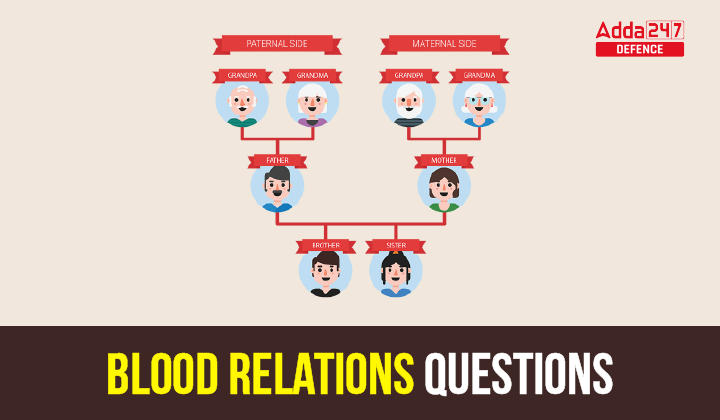


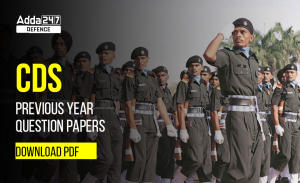 CDS Previous Year Question Papers, Downl...
CDS Previous Year Question Papers, Downl...
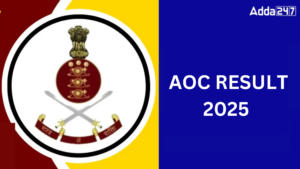 AOC Result 2025 Out, Download Link Activ...
AOC Result 2025 Out, Download Link Activ...
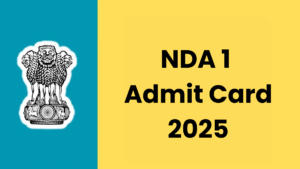 NDA 1 Admit Card 2025 Out, Download NDA ...
NDA 1 Admit Card 2025 Out, Download NDA ...

